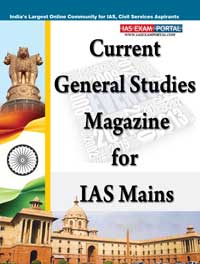Current General Studies Magazine: "Online Offline Parity" June 2016

Current General Studies Magazine (June 2016)
General Studies - III "Science & Technology Based Article" (Online Offline Parity)
E-commerce — essentially, the buying and selling of goods and services, including digital products, over digital and electronic network — is a new but booming market in India. Recent studies have predicted continued exponential growth for the Indian e-commerce market. The country’ young demographic profile would have greater access to the internet and mobile facilities given India’s economic performance. However, e-commerce entities, including enterprises operating in the online retail sector, radio taxi service aggregators/ operators, real estate listings, digital wallets and other related services have faced scrutiny from the Competition Commission of India (CCI) and should ensure that their conduct is in compliance with Competition Act, 2002. Although various cases alleging competition law contraventions have been filed against e-commerce entities, most of them have been closed at the preliminary stage, barring few which are still being investigated by the director general (CCI’s investigating arm). In the cases before the CCI, several allegations of anti-competitive conduct, especially abuse of dominance, have been raised against e-commerce entities (generally by brick and mortar competitors). They focus on the various deals, incentives and discounts allegedly provided to consumers.
In examining whether a given case amounts to abuse of dominance, the CCI determines the appropriate “relevant market” and the enterprise’s dominance therein. A “relevant market” denotes the market for interchangeable or substitutable products or services within a geographic area where the conditions of competition are homogenous. In determining the relevant market in cases concerning e-commerce entities, the CCI has generally held that the e-commerce platform is just another medium to sell/provide goods and services and it cannot be treated as a separate relevant market in itself. However, in certain cases concerning radio taxi aggregators CCI has found that radio taxis constitute a separate market from ordinary taxis. Therefore, other than the mere end-use of the product/service, various factors concerning ancillary consumer preferences can determine whether or not a product/service, when sold/provided on an e-commerce platform, will constitute a separate relevant market. The outcome of certain pending investigations should provide greater clarity regarding CCI’s approach in this regard.
Recent press reports indicate that the CCI has decided to set up an in-house expert panel to examine the issue of cashback incentives offered by online payment platforms such as digital wallets and e-commerce companies. This assumes importance for all e-commerce entities that use such online payment services, especially in the context of the FDI guidelines for e-commerce that were recently released by the Department of Industrial Policy and Promotion. These guidelines clearly state that e-commerce entities will not, directly or indirectly, influence the sale price of goods or services and shall maintain a level-playing field. The guidelines also lay down that e-commerce entities operating through the marketplace model cannot own the inventory sold on the market place and are not permitted to achieve more than 25 per cent of the total sales through one seller or group of companies. The caveats included in the FDI guidelines have implications for competition law concepts such as exclusive distribution/supply agreements, resale price maintenance and predatory pricing. Significantly, online marketplaces such as online travel agencies and online retailers that engage in such discounting policies and cost-pricing strategies have been found to have violated the provisions of comparable competition norms in foreign jurisdictions. The guidelines could thus have implications on the development of competition law jurisprudence in India as well.
However, CCI’s jurisdiction is limited by its statute. It cannot penalise those who do not comply with the norms/guidelines (including the above guidelines), unless they violate the competition act. As consumer dependence on e-commerce entities grows, CCI is likely to focus more on the allegations of anti-competitive conduct in this sector. The caveats imposed on e-commerce entities may have, to some extent, assuaged the uncertainty over the parity between online and offline retailers. However, with CCI continuing to become more sure-footed regarding its regulatory role and taking proactive measures to preserve competition, business practices of e-commerce entities (unilaterally or along with stakeholders including sellers, buyers and various intermediaries) will attract CCI’s scrutiny. E-commerce entities, and related stakeholders will do well to ensure that they are prepared to face such scrutiny.

